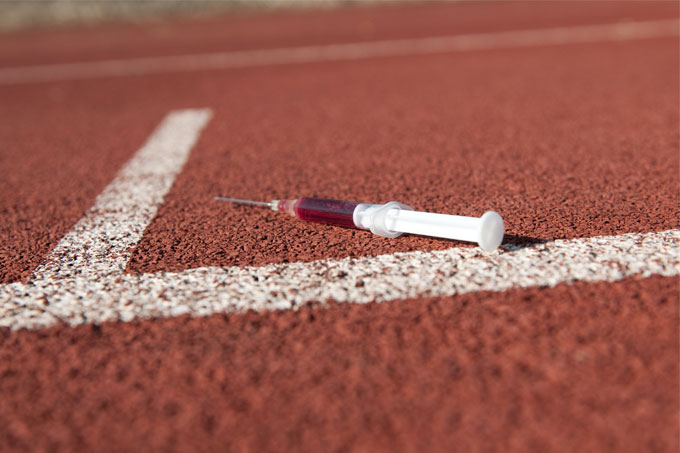Dr Chris Beedie explains how revelations about drug use in amateur sport could help change sporting culture.
Media coverage of drugs in sport is all too often a soap opera, one with a cast of world famous, super wealthy and glamorous characters.
Today’s BBC news however provides some perspective on the issue, as well as hinting at a crisis in amateur sport in the UK.
This news will likely not have the impact it should however, simply because there is no famous sports star implicated, no Maria Sharapova, no Lance Armstrong. Unlike the current investigation into British Cycling, there is nothing for the media to really get their claws into. This story will likely go away very quickly.
And this highlights a serious failing in the way that we deal with doping in sport. Today’s news is far more serious than any story about elite athletes and drugs. It indicates several things. First that doping is not confined to the ranks of the elite, and is widespread in grass roots sport. Second, unlike trends related to alcohol and nicotine use in the UK, the problem with sports drugs is increasingly evident among the young. Third, whilst remaining related to sports, the use of performance enhancing drugs is often not only about winning per se, but also related to issues ranging from pain management to self-esteem.
These three factors all hint at what could be serious cultural problems for sport and for society more generally.
The CEO of UK Anti Doping, Nicola Sapstead, indicates that there is a problem with funding, and “a woeful lack of education at the amateur level”. The problem however is not so simple; education is a double edged sword in this context. This is demonstrated by data from a recent large-scale study conducted by Philip Hurst and colleagues at Canterbury Christ Church University. The study indicates that among athletes who had not previously considered using performance enhancing substances, receiving an educational intervention made 25% of them more likely to use these in the future.
Why would this be the case? Once again it’s a function of the soap opera of sport. If the athletes who received positive tests were minor players, the also-rans, perhaps the message would be less powerful. But all too often they’re not; the roll call of dopers in sport is not one associated with failure. Day on day we hear stories of World Champions testing positive, of Olympic medals being rescinded as new technologies allow old urine samples to be retested.
The problem is that the stories that make the news are about the winners, we rarely hear anything about the athlete who was eliminated in the first heat. The subtext is ‘to win, you have to dope’.
The situation is complicated further by the ‘legal doping’ of therapeutic use exemptions (TUEs), which whilst being within the letter of the law, are increasingly seen by many as being significantly beyond the spirit, in some if not all cases.
In short, the education that junior athletes are receiving via the media is all too often not that performance enhancing drugs are unethical and sometimes dangerous, but that winners take drugs.
This is why today’s news story is so important. It tells us that not all dopers are winners, that many dopers are perhaps relatively unfit – and as is implicated in the story, overweight – middle ranking amateur athletes, taking drugs not to win but to manage pain and self image. In sports terms, these people are not ‘winners’.
This should be the big news story: it’s not just winners, losers take drugs as well. Shifting the media spotlight away from an emphasis on drug use amongst winners and towards drug use among the also-rans might be a very powerful anti doping intervention in itself.
But the key message from today’s news is this: whatever the content of the intervention itself, anti-doping education has to start in our schools and our homes at an early age. Waiting until an athlete has reached the ranks of the promising might mean that they have already been exposed to cultures in which doping is not only accepted, but is the norm.
Dr Chris Beedie is a Reader in Applied Sport and Exercise Science, in the School of Human and Life Sciences.
 Expert comment
Expert comment Jeanette Earl
Jeanette Earl 606
606


